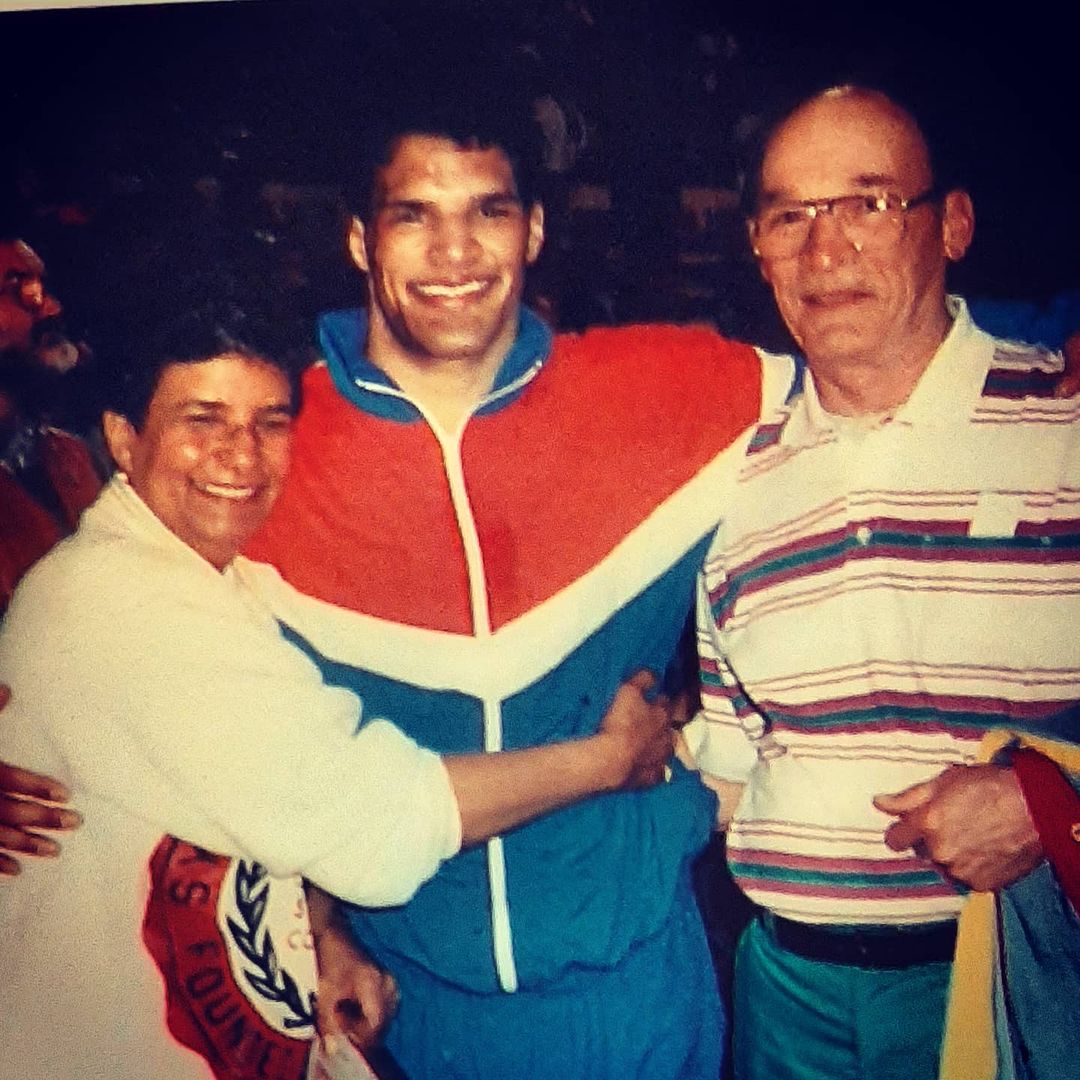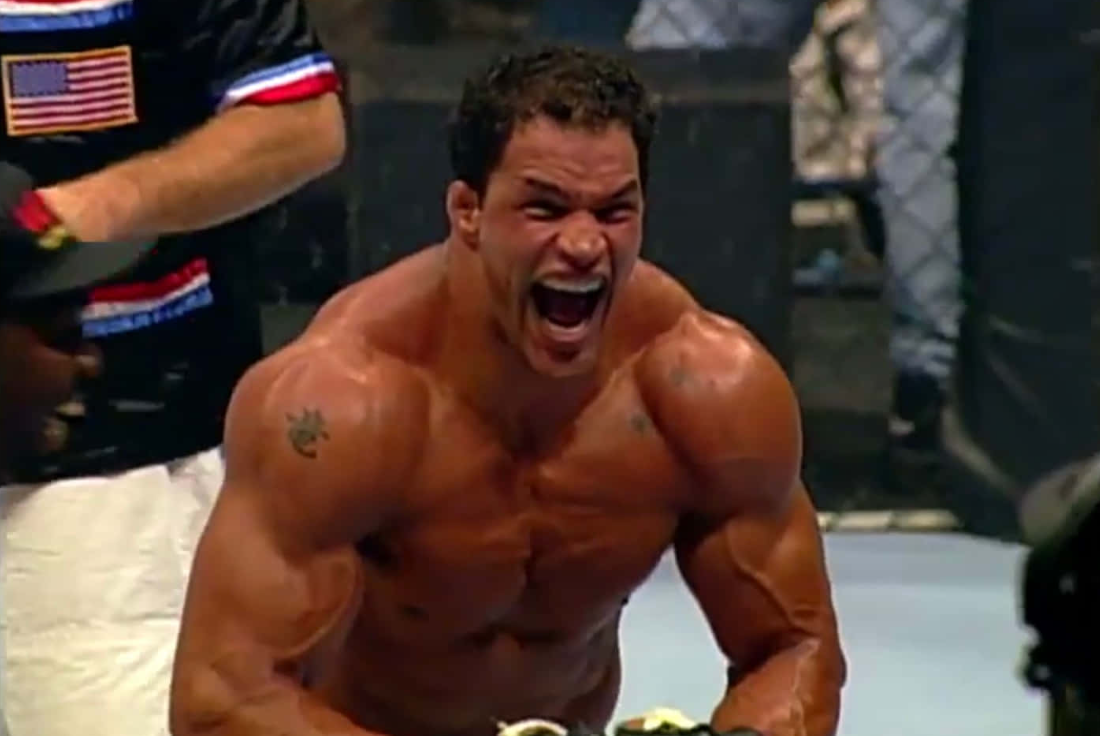When we set out to learn about someone's background, like trying to understand Mark Kerr ethnicity, we usually look for specific details that tell us about their family lines or where their people came from. This kind of information helps us piece together a picture of who they are and the heritage they carry. However, the text we have been given for this particular exploration doesn't actually share any direct facts about Mark Kerr's personal history or his ethnic background. It's almost like having a map that points to a treasure, but the map itself is for a completely different place, you know?
So, instead of giving us specific details about Mark Kerr's family roots, the provided text offers a different kind of beginning. It talks about the start of a very old and important story, a kind of foundational message that shaped many lives. It speaks of good tidings and preparations, setting the stage for something significant that was about to unfold. This is a text that focuses on ancient narratives, on the way a message gets ready to be heard, and how people respond to it, which is quite different from a personal biography.
Our aim here, then, is to really look at this given text, to see what it *does* tell us, and to talk about it in a way that feels natural and easy to follow. We'll explore the messages contained within it, thinking about the human side of these old accounts. Even though it won't shed light on Mark Kerr's specific ethnic origins, it gives us a chance to think about how stories get started, how news spreads, and how communities respond to what's happening around them, which is, in a way, a very human thing to do.
- Age Bieber
- Starsky And Hutch Amy Smart
- Alexandra Daddario Boobs
- Is The Movie The Conjuring Based On A True Story
- Natalie Dal Bello
Table of Contents
- Understanding Personal Backgrounds
- What Our Source Material Reveals About Mark Kerr Ethnicity
- How Do We Usually Learn About Someone's Roots?
- Exploring Foundational Narratives
- The Beginning of a Story - A Deeper Look at Mark 1:1
- Preparing the Way - What Does It Mean?
- Community and Gathering - Insights from Ancient Texts
- When People Come Together - Lessons from the Synagogue
Understanding Personal Backgrounds
Figuring out where someone comes from, their family heritage, or their ethnic background, is often a matter of piecing together different bits of information. We might look at birth records, family trees, historical documents, or even stories passed down through generations. These pieces, when put together, help us form a picture of a person's roots and the cultural connections they might have. It's about recognizing the threads that connect an individual to a larger group of people, to a shared history, and to particular traditions. This kind of search helps us appreciate the wide variety of human experiences, really.
When we consider someone like Mark Kerr, and the idea of his ethnicity, we naturally look for information that speaks to his ancestry. Did his family come from a certain part of the world? Are there specific cultural practices that have been part of his upbringing? These questions are pretty common when we want to know more about a person's complete story. Yet, the material we have been given for this specific request, as a matter of fact, doesn't contain any of these kinds of details. It focuses on a very different sort of narrative, one that has more to do with ancient spiritual messages than with individual family lines.
What Our Source Material Reveals About Mark Kerr Ethnicity
The text provided for our study, which is about the good news of Jesus and John the Baptist preparing the way, simply does not mention Mark Kerr at all. It doesn't talk about his family, his birthplace, or any details that would help us figure out his ethnic background. So, when we look at the question of Mark Kerr ethnicity through the lens of this particular source, the honest answer is that the text offers no information on the subject. It’s like asking a story about a garden for details on a spaceship; the content just isn't there, you know?
- Franklin Thomas Fox
- Arzaylea Rodriguez Blackbear
- Kiersti Allie
- Khleo Thomas Net Worth
- Mary Tyler Show Cast
This means we can't use this specific document to shed light on Mark Kerr's origins. The text is very much focused on its own unique message, on the beginning of a particular spiritual journey, and the figures involved in that ancient account. It's a record of something quite different from a personal history or a genealogical record. We're left to understand that the information we're seeking about Mark Kerr's ethnic identity must come from other places, if it exists at all, because this document doesn't hold it.
How Do We Usually Learn About Someone's Roots?
Typically, when people want to learn about someone's ethnic background, they might look at official documents like birth certificates or census records. Family stories passed down from older relatives can also offer clues, providing a rich oral history of where a family came from and the traditions they held dear. Sometimes, too, people use DNA tests, which can give a scientific look at the geographical regions their ancestors might have inhabited. These are just some of the usual ways we gather information about a person's heritage.
Learning about someone's roots often involves looking at where their family lived for generations, the languages they spoke, or the cultural customs they practiced. It's about understanding the community they grew up in and the broader group they identify with. For someone like Mark Kerr, if we were to truly explore his ethnicity, we would need access to these kinds of personal and historical records. The text we have, however, presents a narrative about ancient events and spiritual figures, which, while deeply meaningful in its own right, doesn't provide any of these personal details, basically.
Exploring Foundational Narratives
Even though our text doesn't tell us about Mark Kerr ethnicity, it does give us a fascinating look at how a very important story begins. It speaks of "the beginning of the good news," which, in its original context, meant the start of something truly transformative for many people. This idea of a "beginning" is something we can all relate to, whether it's the start of a new day, a new project, or a new understanding. It's that moment when something fresh and significant takes shape, you know?
The text then introduces key figures who play a part in this foundational story. There's a messenger, someone sent ahead to prepare the way, and then the central figure himself. This sequence of events, this idea of preparation leading to a main event, is a pattern we see in many important stories, both ancient and modern. It suggests a sense of purpose and a careful unfolding of events, which is pretty interesting when you think about it.
| Detail Category | Information from "My Text" |
|---|---|
| Subject of Inquiry | Mark Kerr Ethnicity (information not found in this text) |
| Primary Narrative Focus | The good news about Jesus, the Messiah, Son of God |
| Key Figures Mentioned | Jesus, John the Baptist, Isaiah (a prophet) |
| Locations Mentioned | Judea, Jordan, Synagogue, "his own country" |
| Themes Present | Beginnings, preparation, teaching, gathering of people, accusations |
The Beginning of a Story - A Deeper Look at Mark 1:1
The very first sentence of the text sets the stage, speaking of "the beginning of the good news about Jesus the Messiah, the Son of God." This opening line is, in a way, a very powerful statement. It's not just a casual introduction; it's an announcement of something truly monumental. The words "Messiah" and "Christ" both mean "anointed one," which points to a figure with a special purpose, someone set apart for a significant role. This tells us that the story that follows isn't just any story; it's presented as one of great importance, almost like a foundational document for a belief system.
The idea of "good news" itself is something that resonates with people across all cultures. Everyone likes to hear good news, don't they? It brings hope, a sense of positive change, and often, a reason to gather and share. This opening, then, is designed to capture attention and signal that what's coming is something worth paying attention to. It's a declaration of a new chapter, a fresh start, and a message that was intended to spread far and wide, you know, to many people.
Preparing the Way - What Does It Mean?
The text mentions a messenger being sent ahead to "prepare the way." This concept of preparation is really quite interesting when you think about it. It means someone goes before, clearing paths, making things ready for the arrival of someone or something important. It's like setting the table before a big meal, or getting a stage ready before a performance. This kind of readiness is often about more than just physical arrangements; it's about getting people's hearts and minds ready too, so.
In the context of the text, this preparation involves a specific figure, John the Baptist, who appears in the wilderness, calling people to change their ways. His role was to get folks thinking, to make them ready to hear the main message. This act of "preparing the way" is a very human experience. We often prepare for big moments in our own lives, whether it's getting ready for a new job, a new home, or even just a difficult conversation. It’s about creating the right conditions for something significant to happen, and this ancient text gives us a glimpse into that very process.
Community and Gathering - Insights from Ancient Texts
The text also speaks of people gathering together, coming from different places to listen and learn. This idea of community, of people coming together in large numbers, is a very strong thread throughout the account. It shows how messages spread and how individuals become part of a larger group, all drawn by a common interest or a shared belief. It's pretty much a picture of human connection, really, and how stories can bring people closer.
We read about crowds gathering, so many that they filled the space. This suggests a compelling speaker, someone who could draw people in and hold their attention. It also tells us about the human need for connection, for shared experiences, and for hearing messages that speak to their lives. Even in ancient times, people sought out gatherings where they could learn, reflect, and feel a sense of belonging. This aspect of the text gives us a window into the social dynamics of those days, showing how people interacted around new ideas.
When People Come Together - Lessons from the Synagogue
The text mentions teaching in the synagogue, a place where people traditionally came together for worship and learning. This setting highlights the importance of shared spaces for community life. A synagogue was a central point for people to gather, to hear readings, and to discuss important ideas. It was a place where traditions were upheld and where new teachings could be introduced, too. The fact that teaching happened here tells us a lot about the way knowledge and messages were shared in those times.
What's interesting, as a matter of fact, is that even in these gatherings, there were different reactions. Some people were keen to listen and learn, while others were looking for reasons to find fault or to challenge the speaker. This mix of responses is very human, isn't it? It shows that even when people come together, they bring their own perspectives, their own questions, and sometimes, their own doubts. This part of the text reminds us that human interactions, even in a shared space, are full of different viewpoints and sometimes, a little bit of tension.
So, while our exploration of the provided text hasn't given us any specific details about Mark Kerr ethnicity, it has allowed us to look closely at a foundational narrative. We've considered the human elements of beginnings, the role of messengers, and the dynamics of people gathering to hear new messages. It's a story about preparation and response, about how a message gets ready to spread, and how communities react to it. This kind of careful look at source material, even when it doesn't directly answer our initial question, can still offer valuable insights into human experiences and the way stories are told and received, you know.
Related Resources:



Detail Author:
- Name : Syble Schultz
- Username : alejandra.parker
- Email : santino.paucek@dibbert.info
- Birthdate : 1998-11-18
- Address : 470 Zieme Flats Laurystad, SC 94982
- Phone : +1.424.475.9420
- Company : Lehner-Boyer
- Job : Counseling Psychologist
- Bio : Illo aperiam laborum molestiae eum. Temporibus odit consequatur error magni tempore nam debitis. Corporis quia illum voluptate repellat.
Socials
instagram:
- url : https://instagram.com/erwin_marks
- username : erwin_marks
- bio : At et molestiae eum aut. Tenetur enim tenetur ex quisquam. Et velit voluptas id.
- followers : 3819
- following : 48
twitter:
- url : https://twitter.com/marks2001
- username : marks2001
- bio : Et rerum voluptatibus et architecto. Voluptatem aspernatur odit harum magni. Eaque velit corrupti vel quam excepturi.
- followers : 219
- following : 778
facebook:
- url : https://facebook.com/marks1982
- username : marks1982
- bio : Praesentium quo molestias at tempore.
- followers : 5695
- following : 151
tiktok:
- url : https://tiktok.com/@markse
- username : markse
- bio : Id sit et modi incidunt exercitationem.
- followers : 2038
- following : 2990
linkedin:
- url : https://linkedin.com/in/erwin2755
- username : erwin2755
- bio : Alias eum recusandae et.
- followers : 1584
- following : 1076